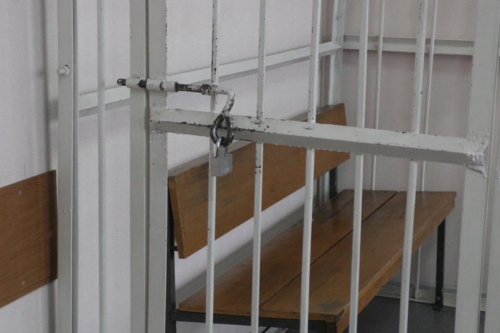Sex workers with HIV targeted in Bolivia
A Bolivian sex worker, 25 and the mother of two children, has been placed under house arrest because she continued to work after being diagnosed as HIV-positive.
A Bolivian sex worker, 25 and the mother of two children, has been placed under house arrest because she continued to work after being diagnosed as HIV-positive.
So what are the implications for other sex workers living with HIV?
The facts
The Departmental Health Service asked the Chuquisaca Departmental Court to take preventive measures against the sex worker because they considered her to be a risk to public health. Judge Ximena Mendizábal ruled that she was guilty of a crime against public health and should receive medical treatment, report to the public prosecutor’s office every two weeks and remain under house arrest with a police guard.
Quoted in the newspaper La Razón, Lily Cortez of the Organización de Trabajadoras Sexuales Nocturnas (OTN—Organisation of Night Sex Workers), said: “She didn’t know anything about HIV. She agreed to have a rapid test but was surprised by the result. We will monitor the case to ensure she does not suffer discrimination.”
Carola Valencia, head of the national HIV/AIDS programme, said: “The lady should not have continued working, but we need to look at why she continued exposing her clients to infection. The Ministry of Health is unable to look for alternative work for those diagnosed with the virus, but provides counselling and medicines to treat the illness.”
However, the OTN spokesperson disagreed. “Confidentiality was violated and this is a case of discrimination. Moreover, the government should provide alternative work to people who are HIV-positive, but we get no help at all, not even counselling.”
An interpretation of the facts
Subjected to a series of discriminatory measures, the woman is the victim of human rights violations resulting from the prejudices and ignorance of health and court officials. First and foremost, the judge sentenced her for a crime she did not commit: “the transmission of HIV to another person”. As far as we are aware, this was not proved in court.
She is being blamed for not seeking or receiving treatment, not because evidence has been offered to prove she knowingly infected a client with HIV during sexual relations. Treatment for HIV is voluntary. To decline treatment cannot be interpreted as intent to harm another person. Moreover, her colleagues claim she was unaware of her serological status.
The case also involves other serious violations of the rights of people living with HIV, including the right to confidentiality and to freedom of movement. Sex workers in particular are being forced to undergo compulsory HIV testing and other medical procedures, while also being intimidated by abuse and police extortion.
International standards on sex work and HIV
All international technical guidelines on sex work and HIV maintain that sex workers living with HIV can continue to exercise their profession.
In April 2012, UNAIDS published a guidance note on HIV and sex work, which states: “In many countries, laws, policies, discriminatory practices and stigmatizing social attitudes drive sex work underground, impeding efforts to reach sex workers and their clients with HIV prevention, treatment, care and support programmes.
“Stigma and discrimination must be effectively addressed; violence and abuse of sex workers must be reduced; and legal barriers to participation should be revised. Achieving the changes in social and legal conditions that limit access to those [HIV] services will take time, but it is critical to implement needed legal and policy reforms now.”
The main focus for preventing HIV must be to change clients’ attitudes towards female, male and transgender sex workers, and to the use of condoms. Sex workers and clients alike are responsible for practising safer sex, although it is important to recognise that power dynamics in commercial sexual encounters tend to favour the clients, especially if they are willing to pay more for sex without a condom.
The impact on everyone living with HIV
What happened in Bolivia is not an isolated event but one more painful symptom of a trend towards the criminalisation of HIV transmission in Latin America. Today the victim was a sex worker but it will happen to others tomorrow.
Even if they are unaware of their serological status, people living with HIV can be indicted if they cannot irrefutably prove they used condoms during sexual relations or communicated their serological status prior to having sex. The Chuquisaca case raises the stakes, and “the witch hunters” will now target recalcitrant patients who do not go to the doctor or take their medicine.
Some officials use the concept of “treatment as prevention” to maintain that “anyone who does not seek treatment transmits and is therefore dangerous”. This represents an extreme expression of the effects of the medicalization of the fight against AIDS.
RedTraSex and its national counterpart ONAEM repudiate what has happened, but one has to ask: What will other civil society organisations in Bolivia and the region do? Today a sex worker sleeps under police guard but tomorrow it could be anyone living with HIV.




